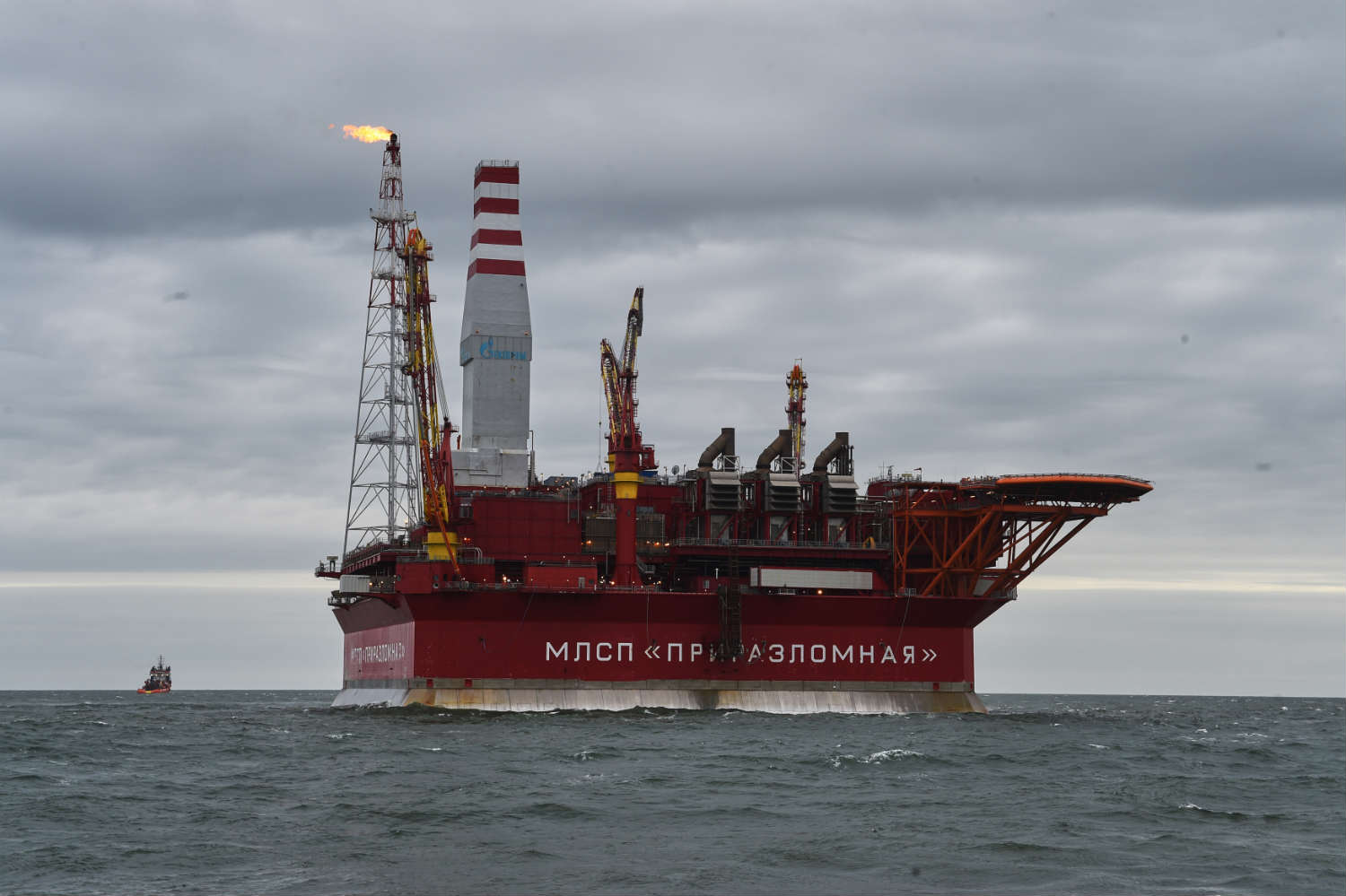
This post originally appeared on OilPrice.com.
Falling oil prices are inflicting deeper economic pain on Russia’s economy, which is already reeling from EU and U.S. sanctions.
Russia is currently considering its budget for 2015-2017, and based on the numbers, the Kremlin is planning for leaner times. With oil revenue accounting for around half of the country’s budget, any dip in prices has a ripple effect.
And in recent years, Russia’s economy has become more dependent on oil to meet its budget commitments. Excluding oil revenue, Russia has run a budget deficit that hit 10.3 percent in 2013, the highest level in three years.
In other words, the government needs oil revenues to plug budget holes, and that need is growing.
Related: Will Ukraine Commit Economic Suicide?
Russia occupies a strong economic position when oil prices are high, but for every $1 decline in the price per barrel of oil, Russia loses $2.1 billion in revenue on an annualized basis. Slumping oil prices in recent months could see revenues to the state decline by $30 to $40 billion.
The Russian economy may only expand 0.4 percent this year, and just 1 percent in 2015. But even that meager growth rate is not a certainty. Russia is increasingly facing the possibility of recession, according to a Bloomberg survey of economists.
Oil prices dipped to around $92 per barrel in early October. While that won’t plunge Russia into an immediate economic crisis, the government needs oil prices to stay around $105 in order to balance the budget. Thus, if oil prices don’t rebound soon, problems will only grow worse for the Kremlin.
The upcoming budget plans for the possibility of persistent inflation, a weakening ruble, and the potential need for the state to dip into cash reserves in order to finance its budget. What is worse, even this negative outlook is based on highly optimistic assumptions – it assumes oil prices of around $100 per barrel.
“It is quite optimistic given where oil prices are at now and given how much the Russian budget depends on oil revenues,” Liza Ermolenko, an analyst at Capital Economics, told The Moscow Times. “For the next year, it’s more likely that the oil prices will be lower than what they are penciling in.”
Running a deficit will be tricky because western sanctions have restricted access to financial markets. Major Russian companies targeted by the U.S. and Europe are unable to take out long-term loans. As a result, they are turning to the Russian state for funds. That has worked so far, but a Bloomberg report outlines an emerging fight within the Russian elite over a dwindling pile of money.
The mid-September arrest of Vladimir Evtushenkov, the head of oil company OAO Bashneft, was a sign that the situation is starting to deteriorate. He is the richest Russian arrested since Mikhail Khodorkovsky was thrown in jail in 2005 and whose oil company, Yukos, was taken over by the state. Evtushenkov, an ally of Prime Minister Dmitry Medvedev, is thought to have been arrested because of a growing rift in Russia’s elite that is at least partially due to the troubled economy.
Related: Europe Seeks To Undermine Russian Energy Influence
“This is creating a dire financial situation, particularly for state companies friendly to Putin, which are now vying for shrinking state resources,” Yevgeny Yasin, a former Russian economy minister, told Bloomberg. Russian President Vladimir Putin and his allies are hunting for more assets as the economy worsens, according to the same article.
Oil prices could remain low for a while. Reuters reports that the Russian central bank is beginning to plan for a disaster scenario in which oil prices drop to $60 per barrel. Such a scenario would precipitate a dramatic weakening of the ruble, forcing the central bank into action.
But there is no easy way out. The Russian economy is far too dependent on the global price of oil, a volatile benchmark largely out of the Kremlin’s control.
More Top reads From Oilprice.com:
More Must-Reads from TIME
- Donald Trump Is TIME's 2024 Person of the Year
- Why We Chose Trump as Person of the Year
- Is Intermittent Fasting Good or Bad for You?
- The 100 Must-Read Books of 2024
- The 20 Best Christmas TV Episodes
- Column: If Optimism Feels Ridiculous Now, Try Hope
- The Future of Climate Action Is Trade Policy
- Merle Bombardieri Is Helping People Make the Baby Decision
Contact us at letters@time.com